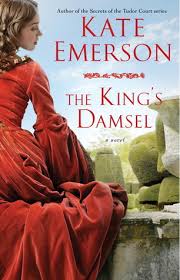I regret that this book will be for sale on October 2nd. Why? The Richard III dig. I do not recommend this book to anyone just beginning with Richard. I am a Ricardian, yes. I have read a lot of information both pro-and anti- Richard and have made my judgment that he did not kill the princes. I will not go into everything that I have or haven't read, but I always keep an open mind.
And as such, I read Alison Weir's The Princes in the Tower. I am amazed that I did not throw the book into the fire when I was finished. That being said, I also kept an open mind when reading this book. I enjoyed Innocent Traitor, so I am prepared to enjoy an author's work, even if we don't see eye to eye on certain points.
Ok, I knew going in that she was anti-Richard, and I was prepared for that. However, the story is told from two different perspectives in two different time periods in two different points of view. Katherine Grey, from the bizarre present tense view of past events; and Katherine Plantagenet, Richard's illegitimate daughter, third person point of view. Then, about 70% through the book we have an interlude of Elizabeth I's point of view...it just didn't flow to me. I admire authors who try to do something different with their writing, but this was uninspired and mundane and the interlude just struck me as weird. Alison said in her author's note that she put the interludes there so that the reader would know Elizabeth's point of view, and not see her as a monster. Ok, so why not also have Richard's point of view in an interlude as well? It would have made more sense, and hey, if she still wanted to portray him as an aspiring tyrant, fine. At least the perspectives would have made a little more sense.
So, was I impressed? No. Do I regret reading the book? Maybe. Will I ever read another of Weir's novels? Probably not.
Now, I will go refresh my soul with the Richard book I recommend to everyone, Sharon Kay Penman's The Sunne in Splendour, one of the best books I have ever read.








